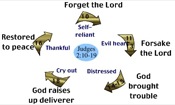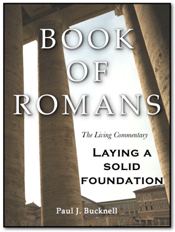
Basic Questions, Advanced Questions, Question formats
A. Identifying the Problem (Haggai 1:1-11)
B. Responding to His Message (Haggai 1:12-2:9)
C. Restoring His Favor upon Them (Haggai 2:10-23)
_________________________
Haggai Study Text (Haggai 1:12-2:9)
12 ¶ Then Zerubbabel the son of Shealtiel, and Joshua the son of Jehozadak, the high priest, with all the remnant of the people, obeyed the voice of the LORD their God and the words of Haggai the prophet, as the LORD their God had sent him. And the people showed reverence for the LORD.
13 Then Haggai, the messenger of the LORD, spoke by the commission of the LORD to the people saying, “‘I am with you,’ declares the LORD.”
14 So the LORD stirred up the spirit of Zerubbabel the son of Shealtiel, governor of Judah, and the spirit of Joshua the son of Jehozadak, the high priest, and the spirit of all the remnant of the people; and they came and worked on the house of the LORD of hosts, their God,
15 on the twenty-fourth day of the sixth month in the second year of Darius the king.
2:1 ¶ On the twenty-first of the seventh month, the word of the LORD came by Haggai the prophet saying,
2 “Speak now to Zerubbabel the son of Shealtiel, governor of Judah, and to Joshua the son of Jehozadak, the high priest, and to the remnant of the people saying,
3 ‘Who is left among you who saw this temple in its former glory? And how do you see it now? Does it not seem to you like nothing in comparison?
4 ‘But now take courage, Zerubbabel,’ declares the LORD, ‘take courage also, Joshua son of Jehozadak, the high priest, and all you people of the land take courage,’ declares the LORD, ‘and work; for I am with you,’ says the LORD of hosts.
5 ‘As for the promise which I made you when you came out of Egypt, My Spirit is abiding in your midst; do not fear!’
6 “For thus says the LORD of hosts, ‘Once more in a little while, I am going to shake the heavens and the earth, the sea also and the dry land.
7 ‘And I will shake all the nations; and they will come with the wealth of all nations; and I will fill this house with glory,’ says the LORD of hosts.
8 ‘The silver is Mine, and the gold is Mine,’ declares the LORD of hosts.
9 ‘The latter glory of this house will be greater than the former,’ says the LORD of hosts, ‘and in this place I shall give peace,’ declares the LORD of hosts.”
Haggai Basic Bible Study Questions (Haggai 1:12-2:9)
-
What three groups or individuals are mentioned in 1:12? Which verse before this has these names?
-
How did each of them respond to the Lord? (Haggai1:12)
-
On what authority did Haggai say the words in 1:13?
-
What is it that he said to them? (Haggai 11:13)
-
How did the Lord motivate the people to serve? (Haggai 1:14)
-
What is it exactly that they did? (Haggai 1:14)
-
How much time lapsed between their compliance and the initial rebuke? (Haggai 1:1, 15)
-
Who does Haggai speak to in 2:2?
-
What was the message for them as found in 2:4?
-
How much time lapsed between this message (2:1) and when they first started (1:15)?
-
What discouraged them to the point of stop building? (Haggai 2:3)
-
Haggai's message continues on right up to verse 2:9. He encourages them in different ways. What does he say in 2:5 that might encourage them?
-
The embellishments given to this temple pale in light of the former temple. How does the Lord through verses 2:6-8 encourage these disappointed builders?
-
Lastly, in 2:9 what does He say that can bring hope to their building project?
Haggai Advanced Bible Study Questions (Haggai 1:12-2:9)
-
Obedience is sweet. What happened in 1:13 and 14 as a result of their unified obedience? Have you ever been in a situation where a whole church, family or society saw their sins and repented at the same time? Please share.
-
How is obedience related to repentance? Do you think that their associating of God's Word with the prophet's word had anything to do with their obedience? How does our belief about the pastor's sermon affect our response?
-
How important is the Spirit of God in a Christian or church's life? Why do you say that? Think about 1 Corinthians 12 and the relationship of the Holy Spirit and spiritual gifts. Have you ever thought how the Spirit of God mobilizes people by gifting and burdening them? Explain. How is this like or unlike what we see in Haggai 1:14?
-
Something drastic happened from the end of chapter one to the beginning of chapter 2. What is this? When was the last time you met up with the spirit of defeat? How did the spirit of defeat hit the Israelites when they seemed so zealous the month before?
-
How is the spirit of defeat like or unlike depression? We saw that obedience brings mobilization and excitement. We also saw how the lack of vision brought disobedience and discouragement. Let's see how God through Haggai restores the Israelites to their orginal zeal and vigor.
1) He identifies with their spirit.
2) Calls them to obey as they formerly decided to do.
3) In 2:5-9 he restores their vision.1) God pinpointed their point of disappointment. Can you try to describe their discouragement? Have you ever heard Satan's tempting words, "You may as well give up. It isn't going to do any good?" Share one or two incidents. Did you give up or persevere?
2) Since obedience mobilizes people and allows the Spirit to move through them, we need to exhort God's people simply to obey. What would you say if that person said, "They didn't feel like it?" A depressed housewife often neglects her household duties. A depressed worker neglects his job responsibilities. What might we say to them? How can we use point (1) to help them even further?
3) From verses 2:5-9 the Lord carefully reconstructs their vision. Their lost of vision caused them to give up and stop reconstruction. We found that in this case by reinstilling their vision more clearly, they actually did keep working and finished this massive job.
a) How might the words "My Spirit is abiding in your midst" (2:5) make a big difference in their lives? What made the temple of God so special anyway? Where is this promise alluded to in the New Testament?
b) Their present temple had none of the special glitter of the former. How did God say that He was going to make up for that in 2:6-8)? Does the amount of money a person or church have make a difference in their joy? Why or why not?
c) The Lord crystallized the vision in a key phrase in 2:9 so that it could be embedded in their minds, "The latter glory ... will be greater than the former." What place does hope have in a Christian's life? How does hope motivate people? Is it okay to create a false hope to mobilize the people? Why or why not? Do you know of anyone that has done this? How did God really carry out this promise? Reflect on 2 Corinthians 4:4. -
The old temple was glorious and shining. The new temple was unappealing. This predicts the humble appearing of Christ. He did not come as king born in a palace, but emptied Himself of His glory (Philippians 2:3-8). This temple prefigured Christ. The old system with the Law just would not work.
-
We need to be careful in not focusing on properties, buildings, or land. The focus needs to be on Christ, the foundation stone. Everything must be built around Him. If we glory in anything but Christ, we truly have lost our true focus. How much time do we spend praying and focusing on establishing Christ as our center point in contrast to caring for properties?
-
If the church is materialistic, the people will not see Christ. People will see that they value just what they value - the things of the earth. How much have you chosen to live in light of God's presence than for your own needs? Are you willing to worship in a broken old church building if God is there in your midst? Are you willing to attend a big fancy church if Christ is not there? What do you need to do to get closer to God?
Information on the Question Format
Basic Questions
These answers will be found right in the Bible passage. The NASB text is used because it is most literal (though not always best). These questions encourage one to ask, "What does the passage actually say?"
Advanced and Application Questions
Advanced and application questions are combined together in the Advanced Questions. These answers will not be found in the text as the basic questions. One has to use other knowledge that one has gleaned over the years to answer these questions properly. They are meant to encourage one to dig deeper into the point of the passage. These questions would have one ask, "What does it mean?"
Application questions are meant to be personal and have to do with ones own life. These questions encourage one to ask, "What does the passage mean to me?"
Return to Haggai index








